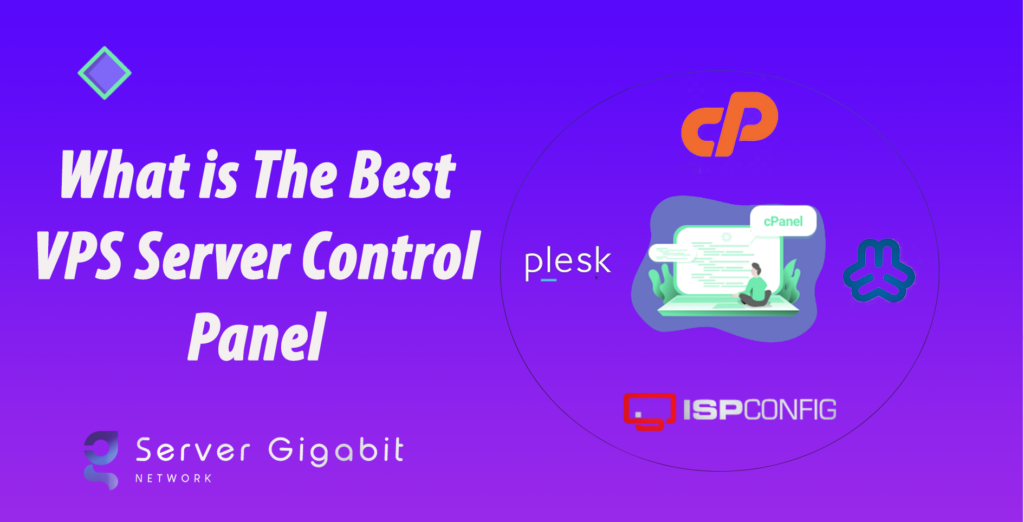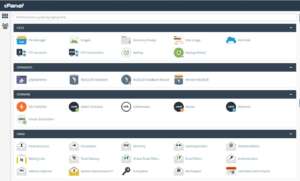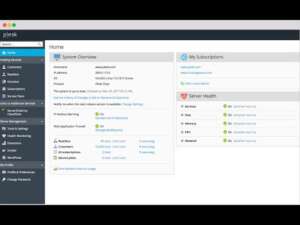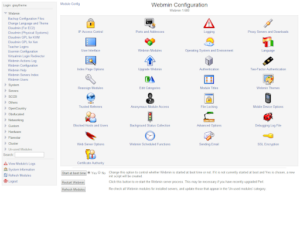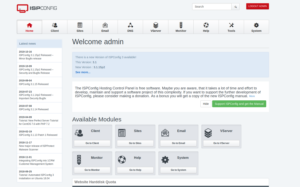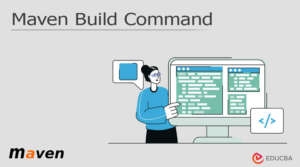Virtual Private Server (VPS) control panels are often overlooked. Even so, it can make the difference between clicking in a user-friendly GUI interface and typing commands into a black screen.
You’d be impressed how many different sites attempt to handle your web hosting. This article will attempt to summarise the most popular control panel solutions for VPS servers as well as their main advantages.
What is a Web Hosting Control Panel?
The web hosting control panel is essentially a software application. It runs on an operating system and gives users access to a variety of operations through a Graphic User Interface (GUI). These operations make it much easier to manage the server and applications.
The features and pricing models of VPS server control panels differ. Their licensing costs can vary significantly, so it’s important to find a solution that meets the specific requirements.
Why You Need a VPS Control Panel?
Technically, VPS hosting can be controlled without the use of a control panel. Nonetheless, such a platform adds a layer of user-friendliness that saves time and eases the pressure on new users.
Even when using a VPS hosting control panel, users can choose to provide more manual control over their accounts. The option is often used by more experienced developers.
Clients can control the following things using a VPS control panel:
- Domains
- Email accounts
- Files
- Applications
- Databases
The Best VPS Control Panel Options
VPS control panels are not all the same, despite their functional similarities. They can indicate the functionality they have, the fees they charge, and even the platforms they may run on. Here are some of the most common VPS control panel options:
cPanel
Among web hosting control panels, cPanel is without a fact the most well-known product. The platform, which was first designed and published in 1996, has gone through several changes since then. A variety of hosting management and automation resources are easily accessible via the GUI.
CPanel has a rather user-friendly GUI. It gives users the ability to access servers from a single location.
cPanel is widely available because it is a multiplatform solution with a large market reach. With over 93 percent of the market share, it holds a near-monopolistic industry leadership status. As a result, licensing fees have increased significantly. Many customers didn’t have much of a choice but to use the service.
Top Features
- Proven reliability & performance
- Strong compatibility with browsers & add-ons
- Excellent site maintenance options
Plesk
Another well-known web hosting control panel is Plesk. Users of Windows-based services were the first to introduce it. Today, the software is also available on Linux systems, with extensive hosting management capabilities.
Plesk is well-suited for those new to web hosting because of its significant relation with Windows. The solution is highly customizable, and it includes several administrative tools for managing Magento, Cloudflare, Let’s Encrypt SSL, and other components.
Plesk was acquired in 2017 and is now part of the same company that operates cPanel, WHMS, SolusVM, and XOVI.
Top Features
- SEO Toolkit
- Repair Kit
- WordPress Toolkit
Webmin
Webmin is a configuration tool for Linux-based systems that was first released nearly three decades ago. Several server distributions, including Debian and Ubuntu, provide it as part of the official bundle.
Webmin is flexible, which means web hosts can tailor their environment to their needs. This architecture allows Webmin to be incredibly lightweight while still providing all of its vital features.
Unfortunately, usability is incomplete, and new users can find it difficult to change to the Webmin interface. This big problem has undermined the popularity of what is otherwise a great control panel choice.
Top Features
- Modular design
- Free to use
- Powerful server management features
ISPConfig
ISPConfig began development in 2005 to serve users in the management of websites, email, databases, and other resources. It is only available for Linux-based operating systems such as CentOS, Fedora, and Ubuntu.
ISPConfig’s power makes it suitable for deployment in a variety of scenarios. Because it can be used on almost any scale, the platform is extremely useful in an enterprise setting.
ISPConfig can be installed on either physical or virtual servers.
This agile web hosting control panel is available in 20 languages and is free to use. Although Webmin is free, some premium components, such as the billing module, malware scanner, and application monitor, may require licensing fees.
Top Features
- Free and open-source
- Stable and high-performance
- Enterprise support
What To Consider When Looking for a VPS Control Panel?
Operating Environment
Not all control panels are multi-platform, and some may need a specific environment to run smoothly. One such example is ISPConfig which is only available on Linux systems and cannot support Win-based projects.
Licensing Fees
The price you have to pay for licensing varies depending on the number of users. While typically, the cost-per-user will decrease based on volume, the final bill can still be significant. Those needing large-scale deployment should closely scrutinize all costs before building their system.
User Friendliness
All web hosting control panels come with unique design and layouts, many can even be subject to further customizations. While these may seem lucrative, make sure they are easy enough for your level of knowledge. Look for a platform that is clear, straightforward, and intuitive enough to ensure seamless navigation.
Capabilities
Most web hosting control panels come with essential server management features. Beyond this, you need to pay attention to your unique needs and whether the chosen control panel will support them.
Performance
While helpful, control panels are an optional extra that consume server resources. Take too many, and that may affect all your website operations. If your system resources are rather limited, a modular control panel may be more beneficial than a completely integrated system.

